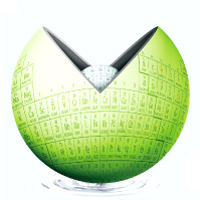
Published for geochemistry community from Geochemical Society of Japan.
Petrogenesis of Early Cretaceous silicic volcanism in SE Uruguay: The role of mantle and crustal sources
Geochemical Journal, Vol. 44, No. 1, P. 1-22, 2010
ABSTRACT
Early Cretaceous (∼129 Ma) silicic rocks crop out in SE Uruguay between the Laguna Merín and Santa Lucía basins in the Lascano, Sierra São Miguel, Salamanca and Minas areas. They are mostly rhyolites with minor quartz-trachytes and are nearly contemporaneous with the Paraná-Etendeka igneous province and with the first stages of South Atlantic Ocean opening. A strong geochemical variability (particularly evident from Rb/Nb, Nb/Y trace element ratios) and a wide range of Sr-Nd isotopic ratios (143Nd/144Nd(129) = 0.51178-0.51209; 87Sr/86Sr(129) = 0.70840-0.72417) characterize these rocks. Geochemistry allows to distinguish two compositional groups, corresponding to the north-eastern (Lascano and Sierra São Miguel, emplaced on the Neo-Proterozoic southern sector of the Dom Feliciano mobile belt) and south-eastern localities (Salamanca, Minas, emplaced on the much older (Archean) Nico Perez terrane or on the boundary between the Dom Feliciano and Nico Perez terranes). These compositional differences between the two groups are explained by variable mantle source and crust contributions. The origin of the silicic magmas is best explained by complex processes involving assimilation and fractional crystallization and mixing of a basaltic magma with upper crustal lithologies, for Lascano and Sierra São Miguel rhyolites. In the Salamanca and Minas rocks genesis, a stronger contribution from lower crust is indicated.KEYWORDS
Uruguay, Paraná-Etendeka, rhyolite, lower crust, crustal contamination- Published : 2010-02-20
- Released on J-STAGE : 2013/03/23
- Received : 2009/01/29
- Accepted : 2009/05/31
- DOI : https://doi.org/10.2343/geochemj.1.0042
- J-STAGE URL : https://www.jstage.jst.go.jp/article/geochemj/44/1/44_1.0042/_article/-char/ja
- J-Online ISSN: 1880-5973
- Print ISSN : 0016-7002
- ISSN-L : 0016-7002
All Issues
- Vol.59, 2025
- Vol.58, 2024
- Vol.57, 2023
- Vol.56, 2022
- Vol.55, 2021
- Vol.54, 2020
- Vol.53, 2019
- Vol.52, 2018
- Vol.51, 2017
- Vol.50, 2016
- Vol.49, 2015
- Vol.48, 2014
- Vol.47, 2013
- Vol.46, 2012
- Vol.45, 2011
- Vol.44, 2010
- Vol.43, 2009
- Vol.42, 2008
- Vol.41, 2007
- Vol.40, 2006
- Vol.39, 2005
- Vol.38, 2004
- Vol.37, 2003
- Vol.36, 2002
- Vol.35, 2001
- Vol.34, 2000
- Vol.33, 1999
- Vol.32, 1998
- Vol.31, 1997
- Vol.30, 1996
- Vol.29, 1995
- Vol.28, 1994
- Vol.27, 1993
- Vol.26, 1992
- Vol.25, 1991
- Vol.24, 1990
- Vol.23, 1989
- Vol.22, 1988
- Vol.21, 1987
- Vol.20, 1986
- Vol.19, 1985-1986
- Vol.18, 1984
- Vol.17, 1983
- Vol.16, 1982
- Vol.15, 1981
- Vol.14, 1980
- Vol.13, 1979
- Vol.12, 1978
- Vol.11, 1977
- Vol.10, 1976
- Vol.9, 1975
- Vol.8, 1974
- Vol.7, 1973
- Vol.6, 1972-1973
- Vol.5, 1971
- Vol.4, 1970-1971
- Vol.3, 1969-1970
- Vol.2, 1968
- Vol.1, 1966-1967
Current Issue:
Stats:
Impact Factor: 1.6 (2024)
Submission to final decision: 9.6 weeks (2022)




